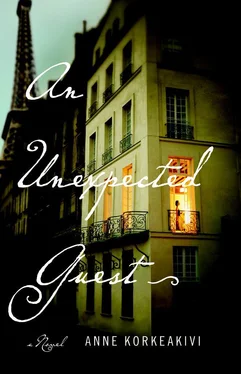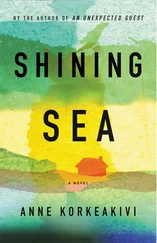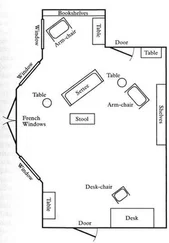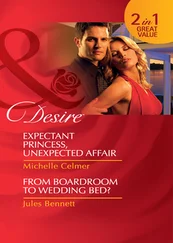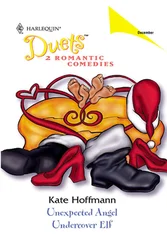James would never show temperance. “Where does he get it from?” Edward would ask when James flew into a fury over being told to pick up his sneakers from the study floor or rolled off his chair in laughter during the rare state dinner he’d been invited to attend. “Certainly not you or me!”
Clare emptied her handful of strawberries back into the colander and closed the fridge. Mollycoddling. That’s what Edward called her behavior towards the children on the rare occasion that they disagreed over parental decisions.
She wiped her hands with a paper towel and headed down the hall towards his room. There was no longer light streaming out from under his door.
She knocked softly.
No one answered.
Had he fallen asleep waiting for her to return? He would have gotten up at dawn to catch the flight for Paris.
She turned the knob and pushed the door open.
On Jamie’s empty bed lay a note, written on a page torn from the Roth novel. Jamie had folded the page in two, with “Mom” scrawled across the outer flap. On the inside was written “Gone out. Don’t want to make any more trouble. I’ll steer clear of Dad until tomorrow. Jamie.”
Clare sat down on the bed. The warmth left behind by her adolescent son’s lanky body pressed into her thighs, and she ignored the urge to lean into it. She’d told Jamie he was to stay put; why did he have to burrow himself into even further trouble? She didn’t want to have to fight with him. She didn’t want to have to punish him. But these things he kept doing — the forging names, the sneaking around, the coming and going without permission — these couldn’t be excused, in the way even cheating might be, as a foolish act of desperation. They were just plain bad. Dangerous, even. Had she given him some reason to think he was to get out of the house for the evening? Or could she have sounded too unsympathetic to the way Barrow had handled his latest mess-up? What had he said? Something about a Ryan? Had she met a Ryan last time she visited? She looked around the room as though it might hold a clue, but Jamie hadn’t been at Barrow long enough to have brought home a yearbook. Jamie’s duffel bag lay on the floor. She made a move to pick it up, then stopped. She wouldn’t look through it.
Instead, she got up and went back down the hall to the foyer console. She extracted her purse from the console and fished out her BlackBerry. It was turned off. She pressed the on button and waited for the sucking sound of its return to power.
The screen saver flashed up. Seven voice messages, three text messages. She scrolled through them, searching. Jamie’s name wasn’t amongst them.
She drummed her fingers on the console. Jamie hadn’t called before leaving for the airport. He’d forged a message to the headmaster in her name, then flown back home without her permission. Without even trying to get it. Now he had, again, deliberately ignored her instructions and left the apartment. “You know, I was barely twenty-four when I started with the Foreign Office,” Edward had said this morning, out of the blue. For a moment, she’d been startled from her surreptitious brooding over the thought of moving to Ireland. Edward was so rarely random.
“That’s quite a while,” she’d said.
“Yes, it is.” He’d looked into his teacup as though seeing all the numerous cups he’d drunk since he’d first started out in the diplomatic service. “But I don’t regret it. Not for an instant. I feel good about what I do for a living. What I could still do.”
She laid her hand out flat and took a deep breath. Here was what she was going to do right now about Jamie. Nothing. She wasn’t even going to worry. Mollycoddling. She’d babied Jamie too much already, and this was what had come of it.
She slipped her phone into her pocket. She was going to take care of the place cards. Before Mathilde and Amélie returned and required her supervision. Then, with her staff back on track for the afternoon, she was going to leave to get her hair done. Edward deserved what little she could do for him. He deserved an ambassadorship. And he deserved Ireland. For three decades, he had sat through endless meetings and downed endless cups of tea or coffee, and sipped almost as many glasses of wine. He’d nodded at appalling individuals and lent an ear to abysmal reinventions of history while his waistline expanded and his chin dropped and his eyelids grew heavier. And then he’d tried to remold those atrocities into something better — a better world, containing a better Britain. And he’d done it all with such patience, and such aplomb. Just two weeks ago, after listening to a long diatribe from the German husband of a Polish diplomat blaming British colonial policy for the mess in the Middle East, Edward had responded, “Undoubtedly, some may question the efficacy or even wisdom of the Balfour Declaration. But rare are the events in history that have not engendered mixed responses. Rare — although not nonexistent. ” He hadn’t even had to use the words “World War Two,” the one historical event almost everyone in the Western world could agree upon. The man had reddened and changed the subject to the upcoming World Cup being held in Germany. Edward was fair; if anything, he was calibrated. He knew when to agree and when to put his foot down. And how to disagree.
Thanks to him she’d learn how to disagree also, with her own past — and not just to be ashamed of the missteps she’d taken. At Edward’s side, she’d folded and packed away every part of her past she despaired of, like worn-out handkerchiefs in colors she no longer liked and embroidered with mottos she no longer believed in. He hadn’t asked her; he never even knew of these prisms in her personal history. Meanwhile, he’d given up things also, putting away pursuits he believed wouldn’t suit her. Oh, the folly of that! Edward had started out at the Foreign Office in a different direction, choosing Arabic for his hard language training and putting his name forth for Lebanon during the Israeli occupation. He’d lived in Kuwait, too, before he was posted in Washington, D.C., and met her. In another incarnation, he might have been happy to have a chance at Bahrain. But after they’d married, after they’d begun having the children, after Jamie’s ignominious start in Cairo, he’d stopped bringing home books on the Palestine conflict, and stopped checking to see what new postings might be coming up in the Arab world. Instead, building on the part of his portfolio in the States that included Irish Affairs, he’d stacked his bedside table with tomes by Gerry Adams and columns by Gary McMichael. He’d perfected his French and stoked his knowledge of the U.K.’s involvement in the European Union. He became a recognized expert in European defense issues. At the same time, he’d never tried to capitalize on her Irish heritage, and she had easily been able to convince herself it was Europe in general he was after, not Ireland in particular. After one or two carefully fashioned displays of indifference on her part early in their marriage, he’d dropped all talk of even visiting the country.
“How about Ireland?” he’d asked the summer after they married while they were discussing where to go for their upcoming holiday. “Shall we do the ancestral tour?”
“I was thinking something more exotic,” she’d responded, flipping the page in her book. “To be honest, I’ve heard so much about Ireland all my life that I feel as though I’ve already been there many times over. There are so many other places in the world to see.”
And despite the inanity of her excuses — too much rain, she’d said with a shrug the second and final time he’d proposed they tour the country — he’d left it at that. He hadn’t even urged her to join him when he’d had to hop across the Irish Channel during his two postings in London. Instead, just as he’d respected all her other personal inclinations, he’d gone along with celebrating her Irish heritage in the vague noncommittal way she’d developed — making jokes about the gift of gab when she was called out for keeping quiet, attending the works of new Irish playwrights each season, donning a spot of green when St. Patrick’s rolled around — accepting her indifference without discussion. If others, less circumspect, might express dismay, saying, “But no coastal stretch can compare to the Cliffs of Moher,” or “But you haven’t seen anything until you’ve seen the lakes of Killarney,” he’d leave her to answer. “Edward already travels so much,” she would say, “and during our holidays, we either go home to visit family in the U.S. or England. What little time we have left, we really need to get some sunshine. But we’ll get there!” And he would smile and nod as she’d start asking about someone’s new book or house or grandchild, deflecting any further questions.
Читать дальше
